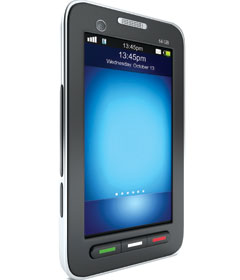

Check Point Software Technologies has published its third mobile security report, revealing that 95% of respondents face challenges with securing and supporting Bring Your Own Device (BYOD) – highlighting the need for more robust security solutions for personal devices tied to the corporate network.
Based on a survey of over 700 IT professionals, the report highlights the ongoing concern at the ease of transporting sensitive corporate information outside of managed environments and details the potential mobile security threats due to lack of employee security awareness or training.
Key findings include:
• The greatest threat resides within your organisation – 87% of surveyed professionals believed that the greater security threat to mobile devices were careless employees. Nearly two-thirds of the respondents believed that recent high-profile breaches of customer data were likely due to employee carelessness.
• Proliferate use of personal mobile devices on the corporate network – Despite careless employees as the weakest link into businesses, 91% of IT professionals saw an increase in the number of personal mobile devices connecting to their networks over the past two years. In 2014, 56% of those surveyed managed business data on employee-owned devices, up from 37% in 2013.
• Mobile security incidents expected to rise – 2015 is shaping up to be a risky year, according to those surveyed. Of the security professionals surveyed this year, 82% expect the number of security incidents to grow in 2015. Additionally, nearly all of the respondents (98%) expressed their concern about the impact of a mobile security incident, with the greatest concern being the potential for lost and stolen information.
• Cost of mobile security incidents continue to rise – 2014 saw an increase in remediation costs for mobile security incidents. Of the IT executives surveyed, 42% noted that mobile security incidents cost their organisations more than $250 000 (+R2,7 million).
• Android continues to be perceived as having the greatest security risks – Android risk increased from 49% in 2013 to 64% this year, as the platform with greatest perceived security risk – as compared to Apple, Windows Mobile, and Blackberry.

“Through our 2014 Mobile Security Survey, it is clear that IT professionals are not seeing an end to mobile security threats, and in fact, are preparing for an increase of these incidents in 2015,” said Doros Hadjizenonos, Check Point South Africa’s sales manager. “We have also recently announced the Check Point Capsule, which helps to solve these challenges as a complete mobile solution that ensures seamless security regardless of wherever the data or device goes.”
The 2014 Mobile Security Report coincides with the launch of Check Point Capsule, a single mobile solution that offers unparalleled protection for business data and mobile devices, everywhere. Check Point Capsule brings multi-layer security that protects business data on mobile devices through secure access to work; prevents internal and external data leakages by attaching security that travels with the document; and extends the corporate security policy to protect devices from threats when outside of the corporate network.
For more information about the Check Point Capsule, or for a full copy of third edition of the report, The Impact of Mobile Devices on Information Security, visit: http://www.checkpoint.com/capsule/

© Technews Publishing (Pty) Ltd. | All Rights Reserved.